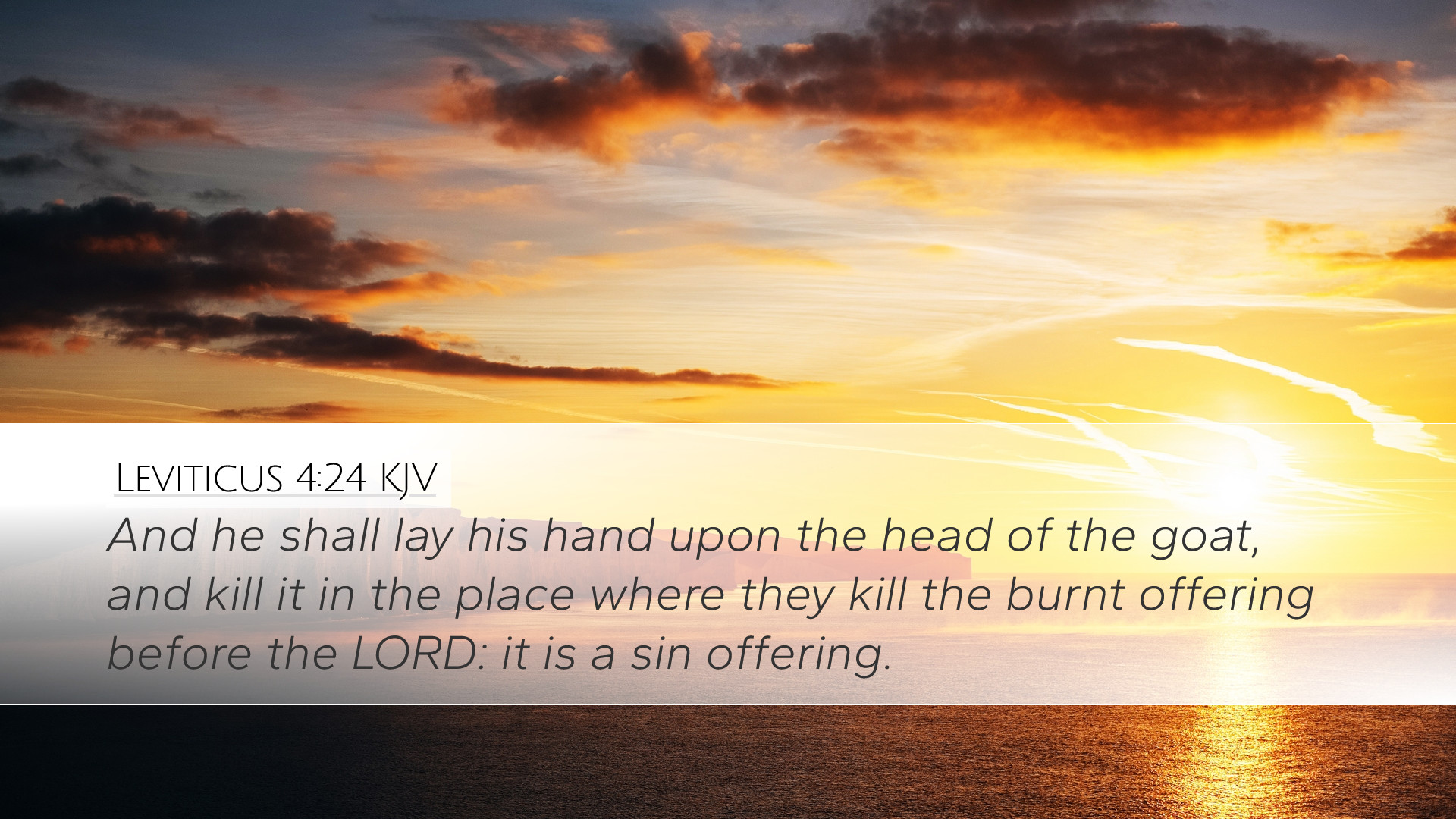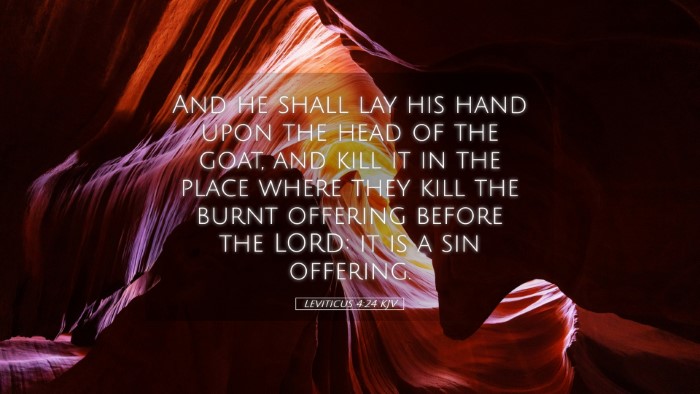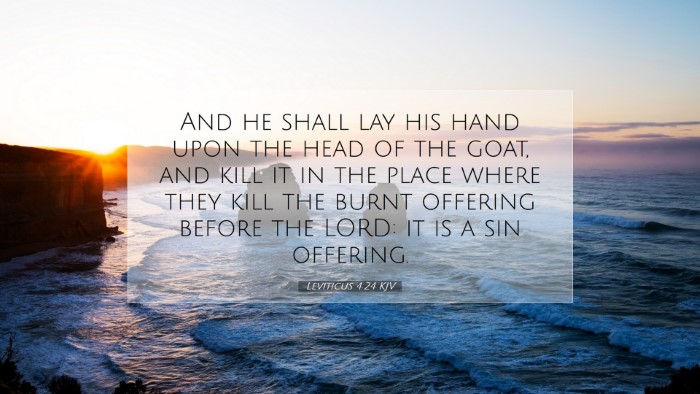Commentary on Leviticus 4:24
Verse Context: Leviticus 4:24 states, "and the priest shall take his blood and put it upon the horns of the altar of burnt offering, and shall pour out his blood at the bottom of the altar of burnt offering." This verse deals with the sacrificial system instituted by God for the atonement of sin.
Insights from Public Domain Commentaries
- Matthew Henry's Commentary:
Henry emphasizes the sacrificial nature of atonement as a means of maintaining the relationship between God and His people. The act of sprinkling the blood represents the seriousness of sin and the cost of redemption. The horns of the altar symbolize strength and the power of sacrifice, emphasizing that sin can only be expiated through the blood. He indicates that this practice serves as a vivid reminder of the gravity of sin and the necessity of sacrifice for reconciliation.
- Albert Barnes' Notes:
Barnes notes that the act of blood being applied to the horns of the altar symbolizes the application of atonement. The horns are significant as they represent a place of mercy and the accessibility to God’s forgiving grace. He elaborates that the ritual not only highlights the transfer of guilt but also reassures the offender of God's mercy, showcasing the duality of justice and grace in God's economy. This act also foreshadows the ultimate sacrifice of Christ, who fulfills the law completely.
- Adam Clarke's Commentary:
Clarke points to the importance of the physical actions of the priest in the sacrificial system, which symbolize deeper spiritual truths. He explains that pouring out the blood signifies the life given for a life taken, emphasizing that sin incurs a death penalty. Clarke highlights that this process of atonement reflects God's justice and mercy, allowing for sin to be dealt with while providing a means for reconciliation through sacrifice. He also notes that this ceremonial observance is rich with theological implications regarding holiness and divine forgiveness.
Theological Significance
The action of the priest in Leviticus 4:24 serves multiple theological purposes. It emphasizes the concept that sin cannot be overlooked; it requires a response, and that response is bloody sacrifice. This foreshadows the ultimate sacrifice Jesus Christ would make for humanity, serving as the final atonement. Just as the blood of the sacrifice before the altar signifies atonement for the people’s offences, Christ’s blood on the cross provides enduring grace and forgiveness.
Additionally, the altar of burnt offering represents a place of acceptance and consecration. By applying the blood to the horns, the priest not only symbolizes the idea of cleansing but also invokes God's presence in the process of reconciliation. The blood speaks of life, loss, and ultimately, the preservation of the covenant between God and Israel.
Practical Applications for Believers
- Understanding the Cost of Sin:
The seriousness of sin is underscored in this verse. Believers are called to live in awareness of sin’s consequences and to value the grace provided through Jesus' sacrifice.
- Recognizing the Need for Atonement:
Just as the Israelites required a priest to mediate and handle sacrifices, Christians are reminded of their dependence on Christ as the High Priest who intercedes on their behalf.
- Embracing God’s Mercy:
The act of sprinkling blood on the altar reminds believers of God’s willingness to forgive and the mercy that triumphs over judgment, thus fostering a heart of gratitude and repentance.
Conclusion
Leviticus 4:24 encapsulates profound truths about the sacrificial system, sin, and the character of God. It provides a foreshadowing of Christ's atoning work and serves as a reminder of the seriousness of sin and the grace of God. Both pastors and laypeople can find rich implications in this passage for teaching, preaching, and personal spiritual development.


